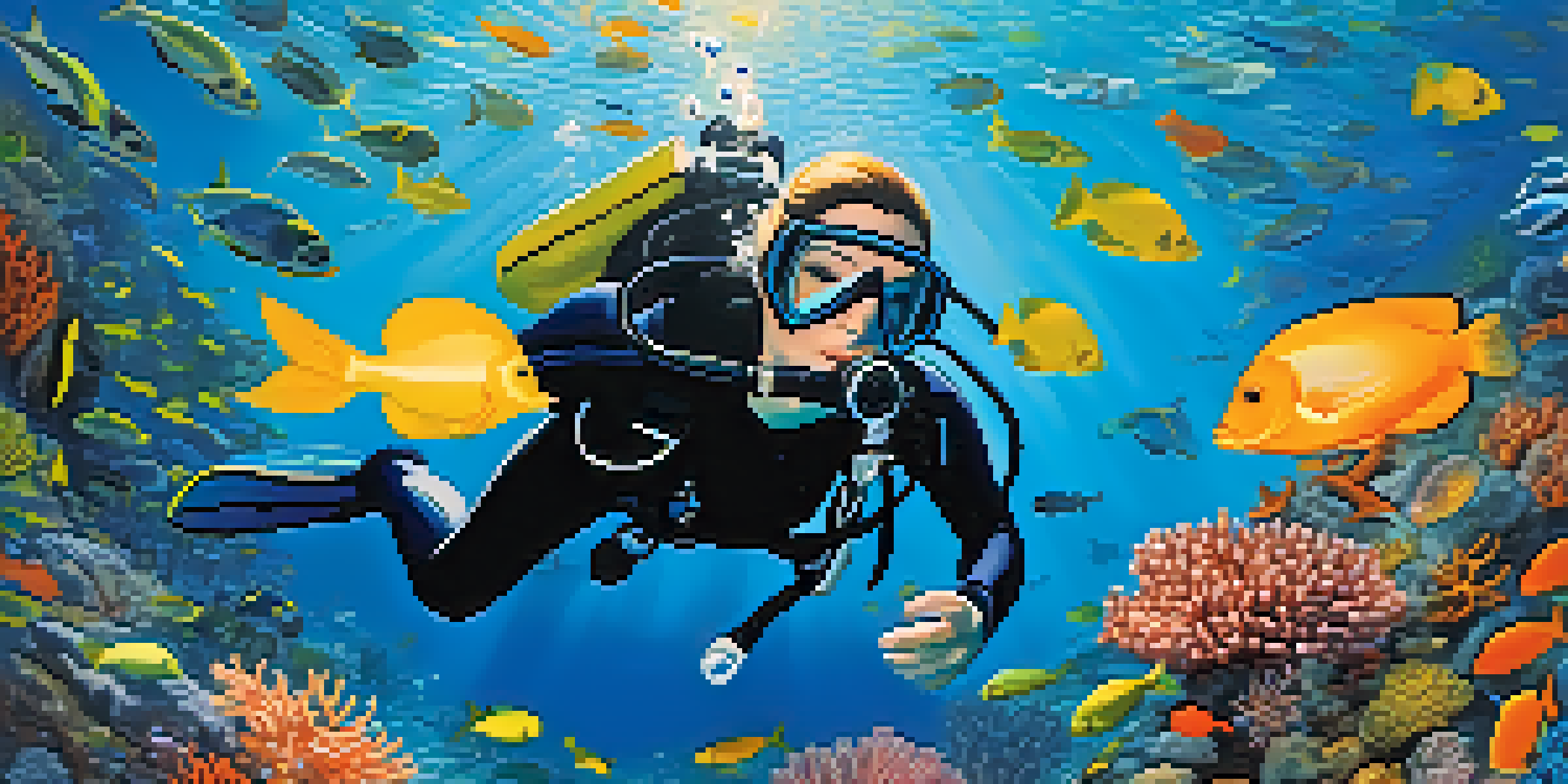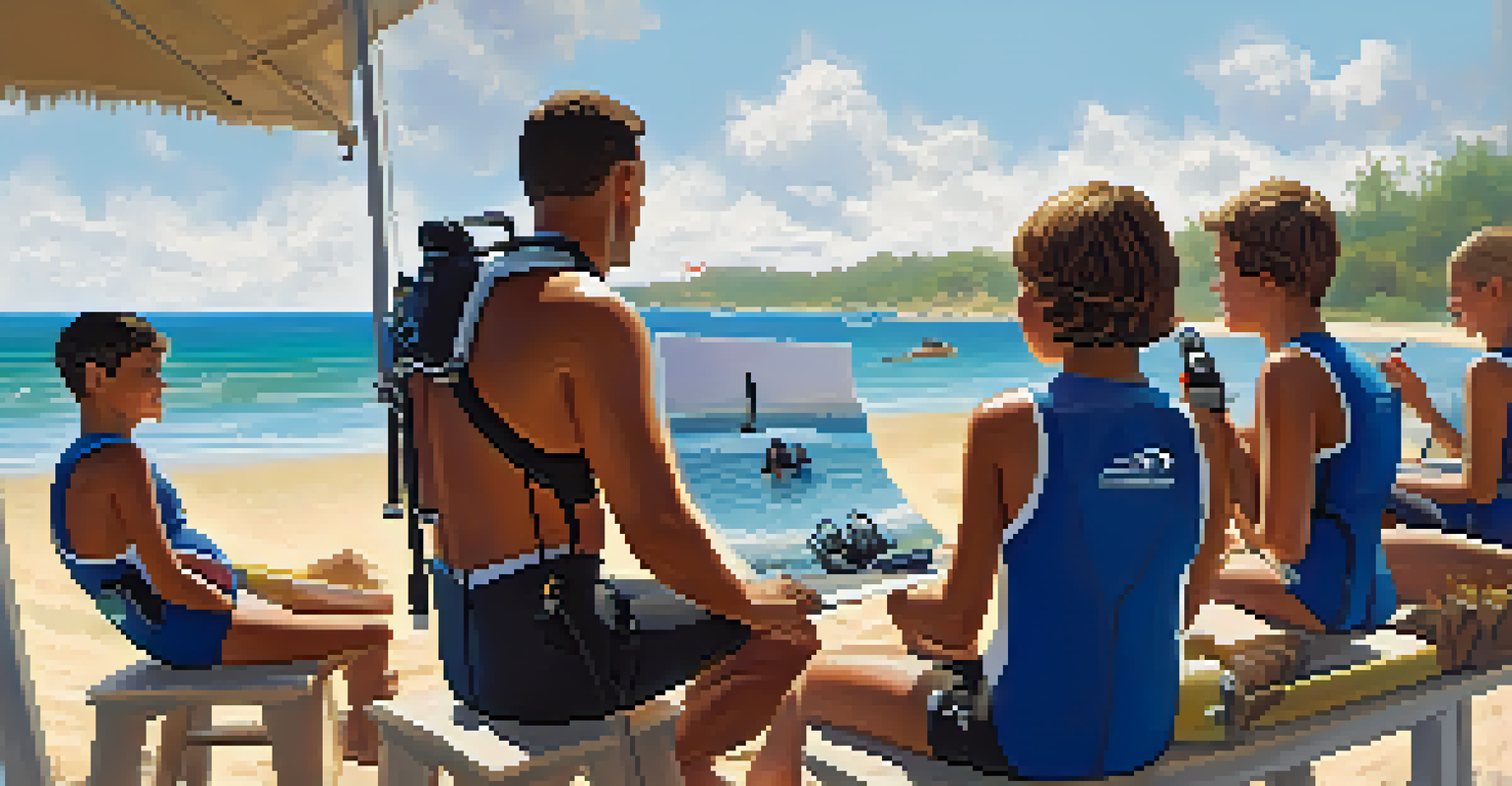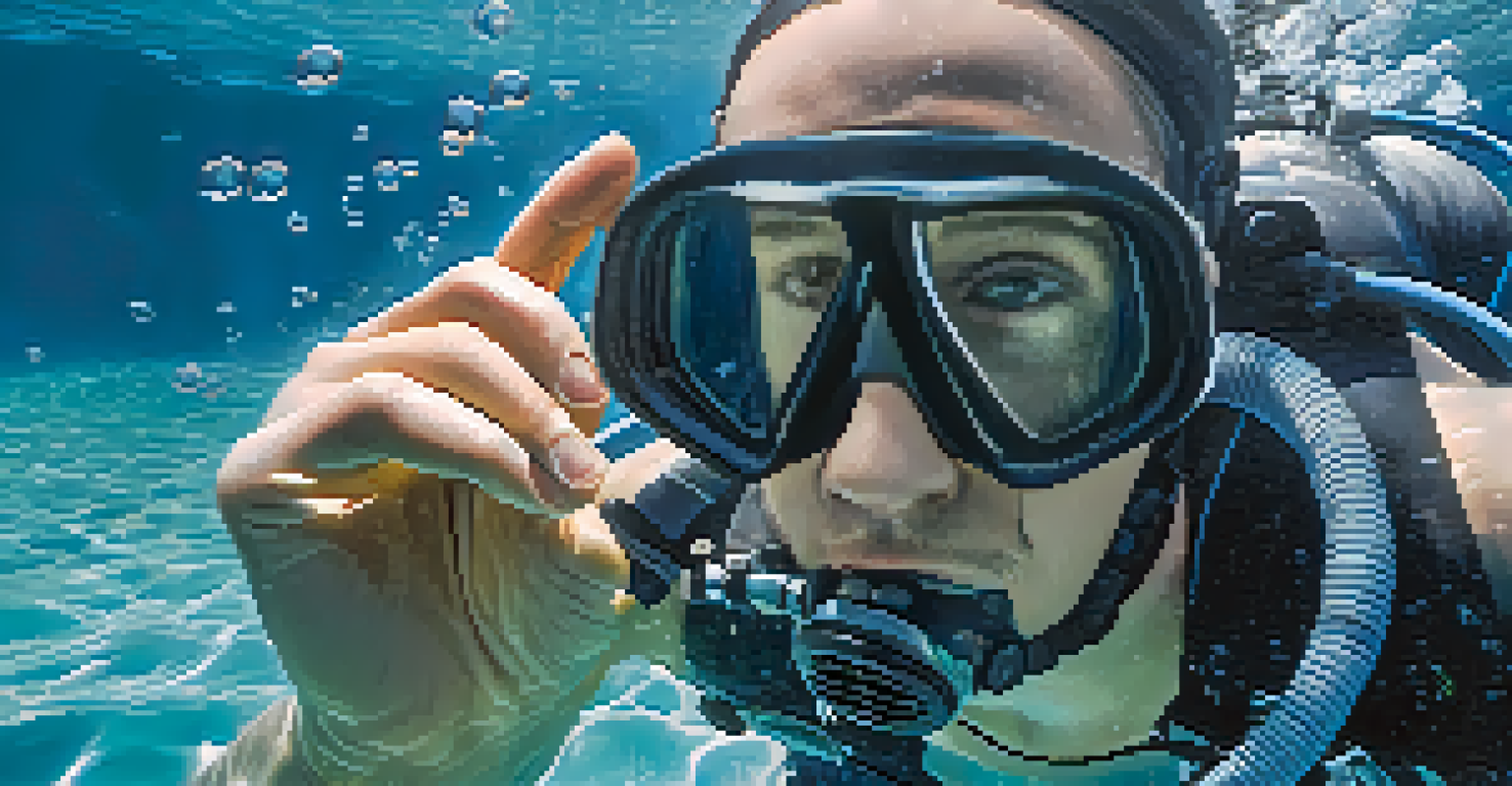Scuba Diving FAQs: Answering Common Questions for Divers

What Do I Need to Start Scuba Diving?
To start scuba diving, you'll need some key equipment. A mask, snorkel, fins, and a wetsuit are essentials for your underwater adventures. Additionally, a buoyancy control device (BCD) and a tank are crucial for breathing and safety.
The sea, once it casts its spell, holds one in its net of wonder forever.
Consider enrolling in a certification course to gain the knowledge and skills needed for diving. Organizations like PADI or SSI offer various programs catering to beginners. These courses usually cover equipment usage, safety procedures, and dive theory.
Once you're certified, investing in your own gear can enhance your experience. While rental equipment is available, personal gear often fits better and offers more comfort, making your dives more enjoyable.
How Deep Can I Dive as a Beginner?
As a novice diver, depth limits vary by certification level, but generally, beginners should stick to a maximum of 40 feet (12 meters). This depth allows for safer exploration and easier management of potential issues. Staying shallower helps you gain confidence while learning.

The PADI Open Water Diver certification allows divers to go up to 60 feet (18 meters) with a buddy after completing the course. However, it's essential to dive within your comfort zone and experience level, gradually increasing your depth as you gain confidence.
Essential Gear for Scuba Diving
To start scuba diving, you'll need key equipment like a mask, fins, and a buoyancy control device.
Always dive with a buddy and communicate openly about your comfort and skill levels. This teamwork is crucial for safety and can make your underwater experience even more enjoyable.
What Should I Expect During My First Dive?
Your first dive can be both exhilarating and nerve-wracking. You’ll likely start with a briefing from your instructor, covering safety protocols and what to expect underwater. Familiarizing yourself with your equipment is vital before you enter the water.
Diving is not just a sport, it’s a way to connect with nature and explore the unknown.
Once in the water, you may feel a mix of excitement and anxiety. It's normal to experience some anxiety about breathing underwater. However, focusing on your breath and taking slow, deep breaths can help you relax and enjoy the experience.
As you descend, you'll likely be amazed by the beauty of marine life and underwater landscapes. Remember, adjusting your buoyancy and equalizing pressure in your ears are key skills to practice during your first dive.
Is Scuba Diving Safe?
Scuba diving is generally considered safe when following proper guidelines and protocols. Like any adventure sport, there are risks involved, but understanding and mitigating these risks can lead to enjoyable dives. Training is essential for safe diving practices.
Regular maintenance of your equipment and adhering to safety standards are critical. Always dive with a buddy, keep an eye on your air supply, and avoid exceeding your limits. Staying within your training level helps ensure a safer diving experience.
Safety Is Key for Beginners
Diving safely involves understanding your limits, diving with a buddy, and staying informed about your environment.
It's also important to be aware of your environment. Understanding local marine life, currents, and weather conditions can further enhance safety. Knowledge is your best ally when it comes to enjoying the underwater world safely.
How Do I Prevent Ear Pain While Diving?
Experiencing ear pain while diving is common, but there are effective ways to prevent it. The most crucial technique is equalization, which involves balancing the pressure in your ears with the surrounding water pressure. You can do this by pinching your nose and gently blowing, a technique known as the Valsalva maneuver.
Start equalizing early and frequently during your descent. Waiting too long can lead to discomfort or even injury. If you feel discomfort, ascend slightly until the pain subsides, then try to equalize again.
If you have a cold or allergies, consider postponing your dive. Congestion can make equalizing more difficult, increasing the risk of ear injuries. Always listen to your body and prioritize your health.
Can I Dive If I Have Medical Conditions?
Diving with certain medical conditions may be safe, but it's essential to consult with a physician first. Conditions like asthma, heart issues, or respiratory problems can complicate diving. A medical evaluation can help determine if you're fit for diving.
If you're cleared to dive, make sure to disclose your medical history to your instructor. They need to be aware of any conditions to provide appropriate support and guidance. Transparency is key to ensuring a safe diving experience.
Respect Marine Life While Diving
When encountering marine life, it's crucial to observe from a distance and avoid disturbing their natural habitat.
Additionally, some diving organizations have specific guidelines regarding medical conditions. Familiarize yourself with these guidelines and always prioritize your safety when planning a dive.
What Should I Do If I See Marine Life?
Encountering marine life while diving can be one of the most thrilling aspects of the experience. However, it's essential to respect the underwater ecosystem. Avoid touching or disturbing creatures, as many can be fragile or dangerous.
Observe marine life from a distance and avoid feeding fish, as this can alter their natural behavior. If you want to capture the moment, be mindful of using your camera without causing stress to the animals.

Remember that you are a visitor in their habitat. Following these guidelines helps protect marine life and ensures that future divers can enjoy the same breathtaking encounters.